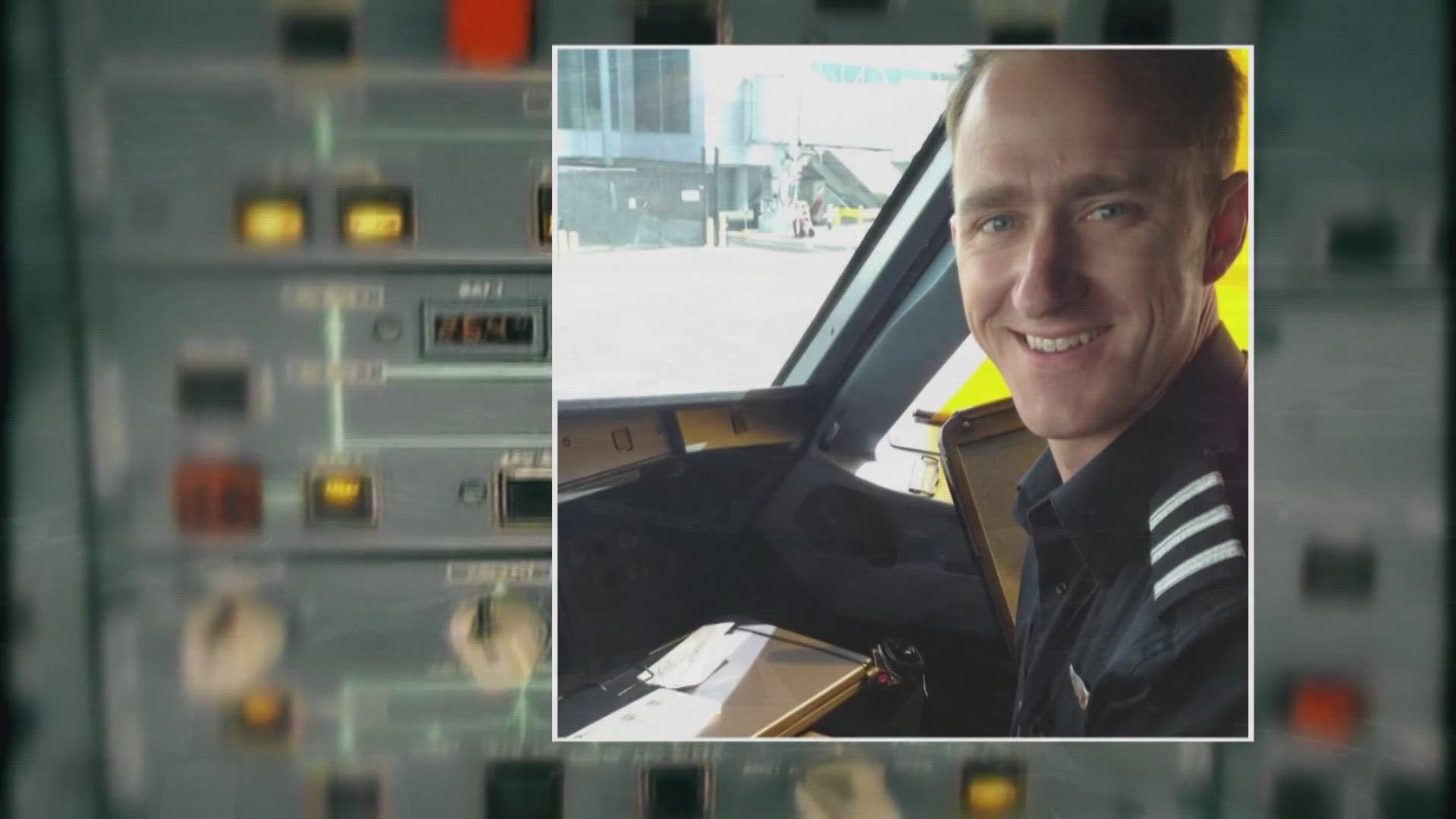SEATTLE — More information is being shared and learned about what happened inside the cockpit of a passenger plane out of Everett's Paine Field Sunday evening and about the pilot's prior FAA medical examinations.
As KING 5 reported, in an Alaska Airlines flight operated by Horizon Air, an off-duty Alaska Airlines pilot reportedly tried to shut off the engines mid-flight.
After that emergency incident, Seattle-based carrier Alaska Airlines issued a new statement Monday night reading, "Throughout his career, (Joseph) Emerson completed his mandated FAA medical certifications... at no point were his certifications denied, suspended or revoked."
Emerson joined Alaska Air Group as a Horizon First Officer in August 2001, according to the airline. They wrote that in June 2012, Emerson left Horizon to join Virgin America as a pilot, and then became an Alaska Airlines first officer, following Alaska’s acquisition of Virgin America in 2016. Emerson later became an Alaska Airlines captain in 2019, they said.
Emerson has since been booked on 167 charges, including 83 potential counts of attempted murder.
The flight had been headed for San Francisco but had to be diverted Sunday evening due to the emergency. Emerson, according to investigators, was sitting in the jump seat, which was located in the plane's cockpit, behind the two on-duty pilots.
John J. Nance, an air safety advocate and former captain for Alaska Airlines, spoke about the rarity of this situation.
"You don't expect to have something like this happen... It's just completely anomalous," said Nance. "We just don't let anybody sit in any of the seats on the cockpit or without the proper training."
Authorized off-duty pilots are commonly allowed to sit in the jump seat when the cabin is full.
"In many cases, probably 50-60%, a jump seat is filled with a pilot. And nothing has gone wrong for almost 30 years," said Nance.
In a statement, Alaska Airlines said Emerson tried to shut down the engines by pulling on the red engine fire handle in the overhead panel, which is designed to cut fuel off to the engines in the case of a fire.
"If it had been pulled, the engine would have stopped," said Nance. "My understanding is that the hand that was reaching for it never got to actually pull it for one reason or another."
Pilots were able to subdue the man, and as Alaska Airlines said, "the quick reaction of [the] crew to reset the T-handles ensured engine power was not lost."
When it comes to who can sit in a jump seat, airlines use a system called CASS, or Cockpit Access Security System. It went into effect for airlines in 2005.
"After 9/11, there was a beyond exhaustive look at by the FAA by all the airlines, and everything we needed to do to deny access to people who did not have any business being in a cockpit, whether they had murderous intent or not," explained Nance. "That included everybody, including us. And so situations were identified that required a methodology of making sure that we weren't going to give credentials to the wrong person, we weren't going to let them in the back door while everybody else goes through security.
Emerson was eligible to be in the jump seat as a current Alaska Airlines captain.
More information will be released by the National Transportation Safety Board after they fully investigate.
Meanwhile, Nance said it is a relief that the system worked favorably to prevent a tragedy.
"This system did work. We didn't end up with an accident. We ended up with the two pilots getting rid of the guy who was a problem. And the airplane continued," he said.
After the plane was diverted to Portland, everyone onboard got on another plane and continued their trip.
Emerson is currently in custody and he is being investigated by the FBI, as well as the Port of Portland Police Department.

